Young Spaniards, among the least socially isolated in the European Union
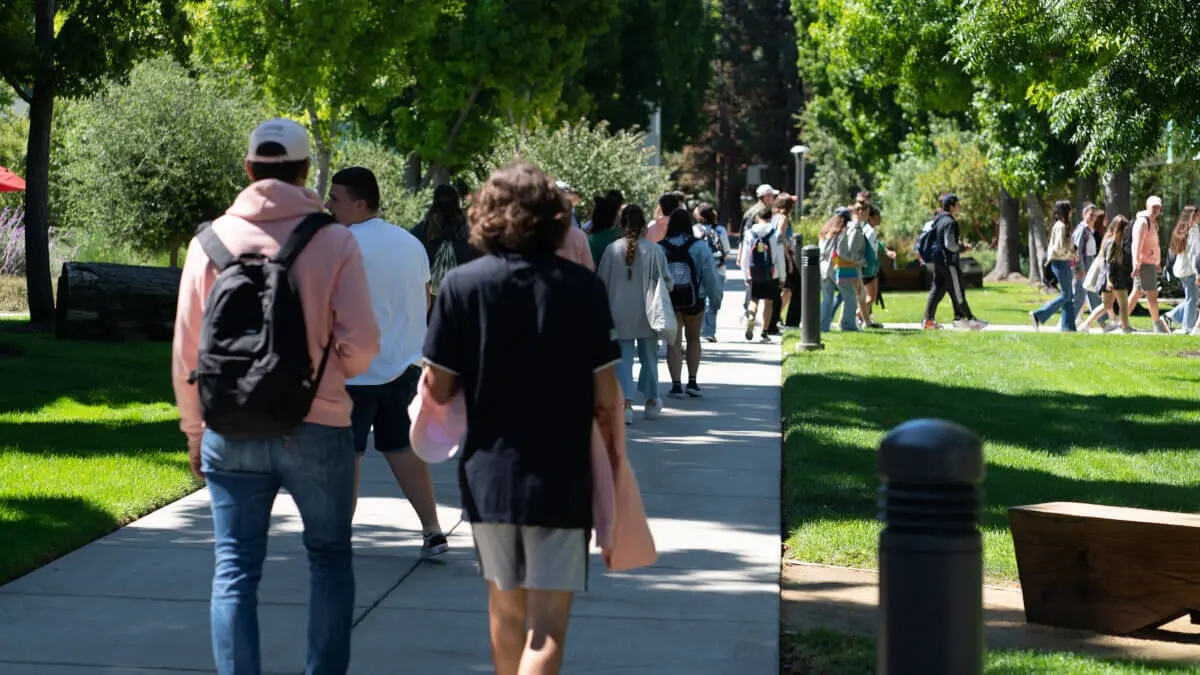
- Young Spaniards, among the least isolated in the EU
- The impact of the pandemic on isolation, an aspect to be reconsidered
- The implications of our family model
The study Las relaciones personales de los jóvenes con su entorno compares the sociability of young Spaniards with that of the rest of the European Union (EU) and analyses the factors of inequality that aggravate social isolation. Joan Miquel Verd, lead researcher of the study, published in the dossier Young people, opportunities and futures of the Social Observatory of the "la Caixa" Foundation, explains why the Spanish social and cultural context has a positive influence on the mental health of young people.
Traditionally, social isolation and unwanted loneliness have been associated with older people. However, in recent decades, the demographics of loneliness have changed. And the main reason for this change is an evolution of Western societies marked by the individualisation of relationships and the weakening of community ties.
Across the world, the social isolation of young people has become a societal concern. Its effects on young people are diverse and complex: it affects their mental and physical health, their social and emotional development, and their academic or occupational performance. In this sense, the study Las relaciones personales de los jóvenes con su entorno is important, a study carried out by Joan Miquel Verd, Mireia Bolíbar and Joan Rodríguez-Soler, from the Centre d'Estudis Sociològics sobre la Vida Quotidiana i el Treball of the Universitat Autònoma de Barcelona, together with Rita Gouveia, from the Instituto de Ciências Sociais of the University of Lisbon, published in the dossier Jóvenes, oportunidades y futuros of the Social Observatory of the "la Caixa" Foundation.
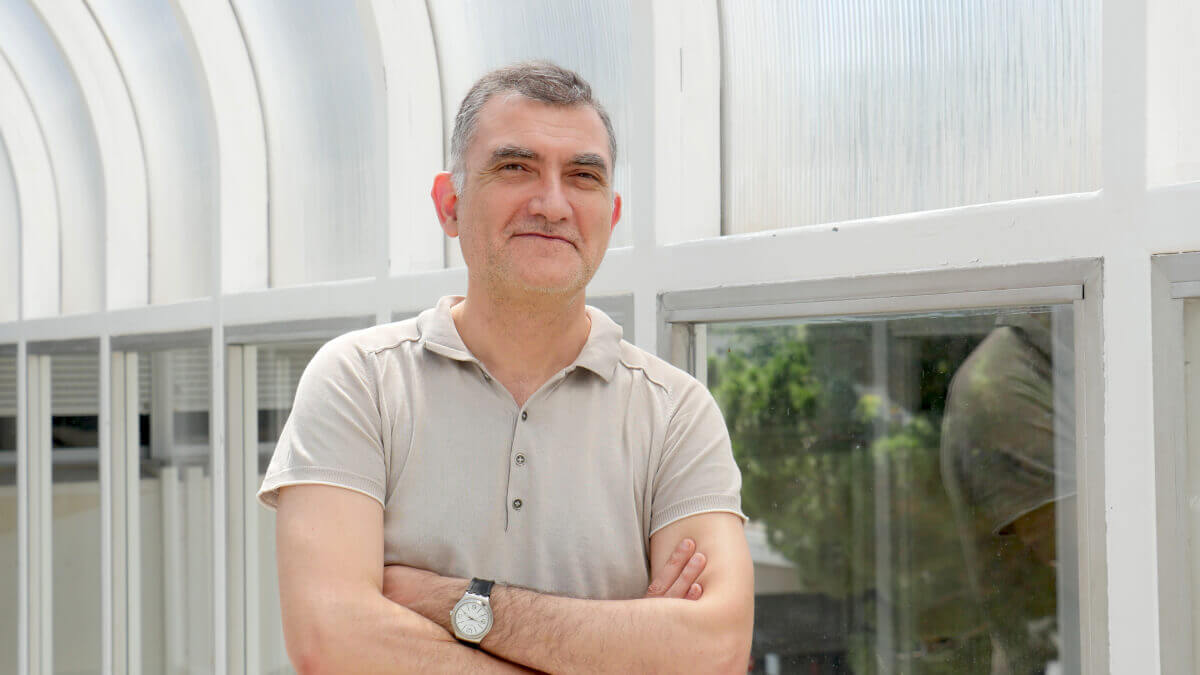
"In the study, we focused on discovering what objective social isolation entails: who young people relate to, how often they do so and what factors influence whether they do so more or less", explains Professor Joan Miquel Verd.
These social relationships can determine young people's access to material resources - such as economic support from the family - affect the development of their life trajectory and have a strong impact on their emotional well-being.
The data used in the research come from the European Social Survey 2020-2022, post-pandemic numbers that provide an illuminating picture of the current situation.
Young Spaniards, among the least isolated in the EU
According to the study by Verd and his research team, the sociability of young Spaniards is richer than the European average. They have a greater number of strong personal relationships and interact with friends, peers or family slightly more frequently.
But "one of the most significant data in the study", says Verd, "is that they are at the top of the EU, ahead of Greece and Portugal, in terms of affective proximity to their parents". As the following graphs show, 56.6% say they feel extremely close to their parents and 70.6% interact with them at least once a day, compared to 37.9% and 49.2% of the European average, respectively.
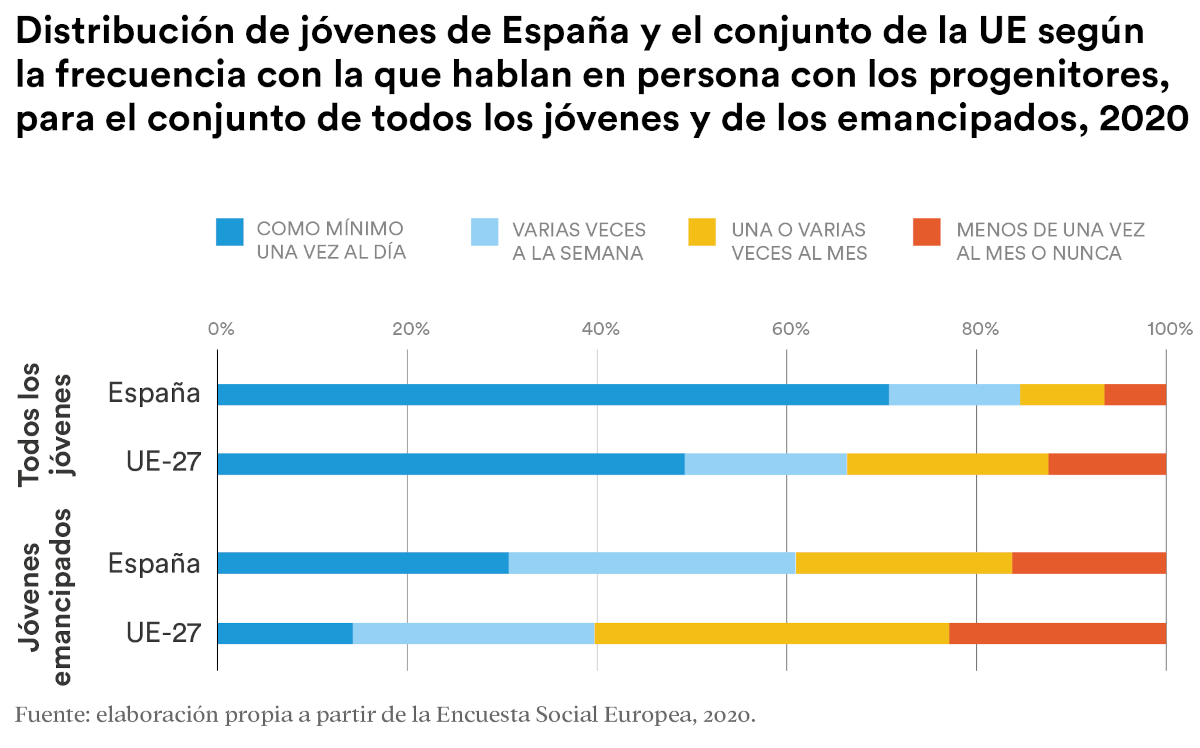
The professor also highlights other findings, for example, that inequality factors such as being a woman, being unemployed or of foreign origin aggravate isolation. Living in a household with high economic vulnerability, being long-term unemployed and having parents with a low occupational status are the situations that generate the most social isolation among young people in the EU.
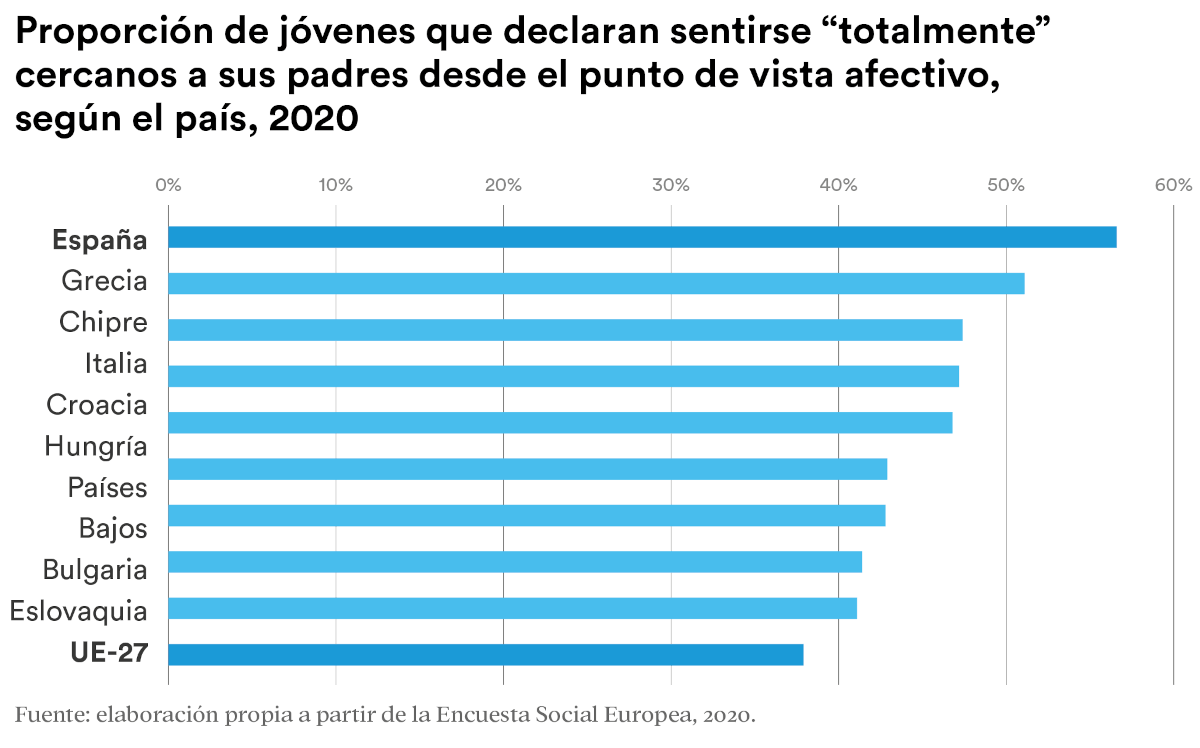
"However," says Verd, "it is interesting to note some different patterns in relation to the European average. For example, girls are more isolated than boys at European level, but in Spain it is boys who are more isolated than girls, and not as isolated as the European average. Moreover, young Spaniards with the most vulnerable profiles are not as isolated as in the rest of the EU, except in the case of people of foreign origin". Overall, in Spain, only 9.1% of young people suffer from some social isolation, compared to 12.4% of the European average. Therefore, the greater sociability of young people in southern Europe and their greater contact with the family subtly cushion isolation and have positive effects on their mental health.
The impact of the pandemic on isolation, an aspect to be reconsidered
The COVID-19 pandemic was a severe blow to young people. According to Joan Miquel Verd, their demand for consultations with psychology professionals increased significantly, but the professor points out that, deep down, the reduced sociability of people aged between 18 and 35 was something that had been building up for years. "The current context tends to individualise and commodify everything, even leisure spaces," the expert points out. "This process was something that had been going on before the pandemic and has a decisive influence on the isolation of people with fewer resources, who don't even have the money to go out for a drink with their friends".
The growing importance of mobile phones in our lives has also been pointed out by many studies as one of the reasons for the decline in our personal relationships, especially after the pandemic. However, the professor believes that, in general, its impact has been exaggerated: "Addiction to mobiles, which can be pathological in nature, is one thing, but the fact that mobile phone use generates social isolation is another".
Joan Miquel Verd's team has found in other studies that having a wide network of virtual relationships or virtual interaction can compensate to some extent for the lack of face-to-face interaction, although it does not replace it: "If you have a good number of in-person relationships, digitalisation helps you to keep in touch with that network. The problem arises when you don't have it and, in addition, you are unemployed, have few economic resources or are an immigrant, because, having a smaller or non-existent network, you run the risk of spending all day on the Internet building a fictitious network of connections".
The implications of our family model
Affective proximity to parents can be linked to the "familist" model of welfare that exists in Spain. This means that the family plays a very important role in Spain and may even replace the role of the state in other countries. "This idea that the family is going to help you all your life is very Mediterranean", says the expert. "In the countries of southern Europe, there are no social benefits for emancipation, support and finding a home that the state offers in northern countries. This means that this support has to be provided by the family".
However, not all families are able to offer such resources to their children, which exacerbates the social inequalities at the outset and means that the most vulnerable young people take longer to become emancipated. According to Eurostat data (2022), in Spain young people emancipate on average at 30.3 years of age, while in the EU as a whole they do so at 26.4 years of age. "No matter how well they get along with their parents, many of these young people would like to be independent and this ends up causing them emotional discomfort," says Verd.
According to the researcher, this greater dependence on the family environment should be compensated with measures to improve the social capital of young people. "We should deindividualise and demercantilise leisure", says Verd. "We could, for example, make more open and free interaction spaces available to young people and organise concerts or other activities so that young people can interact with each other without having to pay. This is something that is more common outside the big cities, and this is noticeable in the fact that the feeling of unwanted loneliness in non-urban environments is lower than in urban environments".
On the other hand, the expert defends the role of collective accompaniment, mentoring and dynamisation programmes, especially for recently arrived immigrants, as they help these people to leave their environment and reduce their isolation.
Finally, Joan Miquel Verd points out that it would be advisable for both young people and those who work with this group to become aware of the importance of personal networks beyond the family as a source of resources for a full life, as these strong ties are the ones that usually provide the most support, especially emotional support. As can be seen in the following graph, 30.7% of young people in Spain have a network of around 4-6 people with whom they can talk about intimate and personal matters, a percentage very similar to the European average.
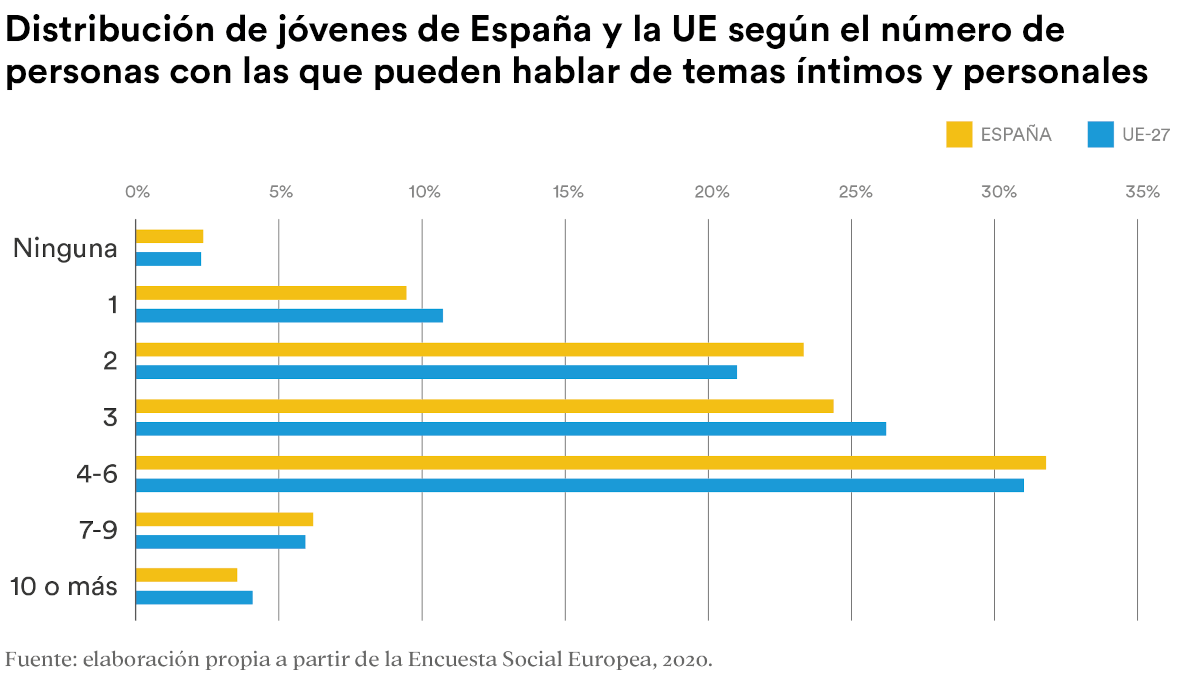
"The social isolation of young people stems from a lack of environments and connections," says Verd, "and any measure that reduces it will contribute to improving not only the quality of life of these people, but that of the entire population," he concludes.










